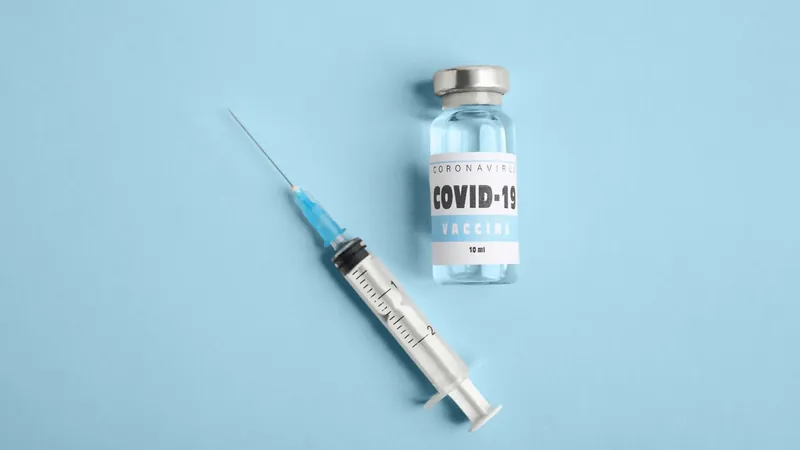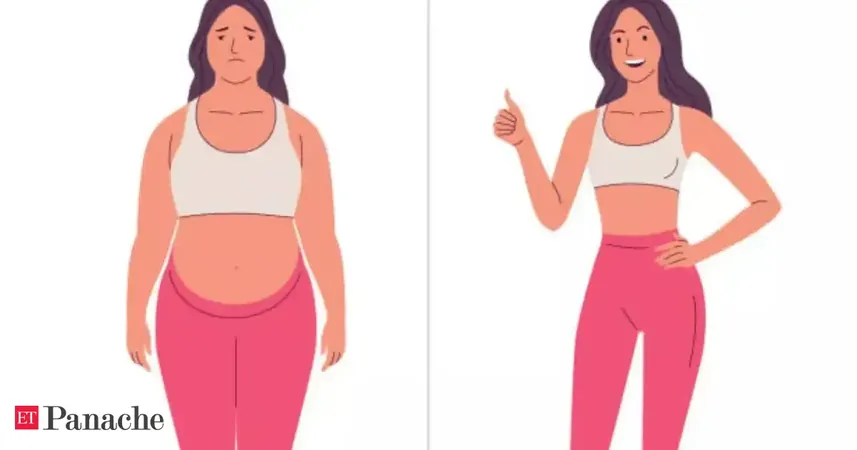
The 2025 COVID Vaccine Guide: Who Can Get It and Where?
2025-09-15
Author: Jia
As we step into the fall of 2025, navigating the COVID-19 vaccine landscape is more complex than ever before. The U.S. Food and Drug Administration (FDA) has shifted its recommendations, now approving vaccines primarily for seniors aged 65 and older and those with specific health conditions.
In a puzzling twist, while healthcare providers await direction from the CDC, vaccines may not be readily accessible to everyone due to insurance hesitations rooted in CDC approvals. The Advisory Committee on Immunization Practices (ACIP) is set to meet soon, which could further clarify the guidelines.
Who’s Eligible for Vaccination?
Under the latest FDA guidelines, the updated COVID vaccines are available to: - Adults aged 65 and older - Individuals aged 6 months to 64 years who have at least one qualifying health condition.
A broad array of conditions can qualify someone as high-risk, including: asthma, diabetes, heart diseases, certain cancers, and even lifestyle factors like physical inactivity or being a current smoker.
Confusion is Running Rampant
Despite the clarity in eligibility, confusion abounds—a lingering effect of shifting guidelines. For instance, while the American College of Obstetricians and Gynecologists recognizes pregnancy as a high-risk factor, the HHS previously removed pregnant women from eligibility. Likewise, the American Academy of Pediatrics continues to advocate for vaccinations for young children, despite the FDAs constraints.
A Large Portion of Adults Still Qualify
Surprisingly, up to 60% of young adults and 78% of midlife adults have conditions that may qualify them for the vaccine under these new rules. If you’re unsure of your eligibility, consult with your pharmacist or healthcare provider. They may still be willing to prescribe the vaccine even in borderline cases.
State-Specific Pharmacy Rules
Pharmacies are the primary venues for vaccine distribution, but regulations differ from state to state. Some states demand a prescription for those under 65, while others allow self-attestation of qualifying conditions—the ability to state your risks without a prescription.
For example, CVS can administer the vaccines without a prescription in 40 states, but not all. Residents in states like Arizona and Florida should be particularly cautious about what their pharmacies require.
Check Before You Go!
It's essential to verify your pharmacy’s vaccine policy before heading out. If they require a prescription, reach out to your healthcare provider who can send one directly.
Will Your Insurance Cover It?
Insurance coverage for the COVID vaccine this year is murkier than in previous years, with plans potentially requiring co-pays or outright denial of coverage based on CDC recommendations yet to be finalized.
Always call your pharmacy ahead to understand any potential costs. A COVID-19 shot can range over $200 if you are uninsured. Luckily, resources like PfizerRxPathways and Moderna's community health partnerships can assist those who may need help affording the shot.
Key Takeaways for Getting Vaccinated
Securing a vaccine this year may take some effort. Here are tips to ease the process: 1. Call multiple pharmacies to compare requirements. 2. Stay updated on your state health department’s website for local clinics. 3. Have a conversation with your doctor about prescriptions if necessary. 4. Always inquire about insurance coverage before heading to the pharmacy.
When’s the Best Time to Get Vaccinated?
Experts agree now is an excellent time to get vaccinated. With wastewater testing indicating a surge in COVID-19 levels, immunity is essential as we head toward the colder months. Both public health specialists advocate for timely vaccinations before the holiday season.
Why You Should Still Get Vaccinated
COVID-19 is still very much a part of our reality, with millions of cases projected for the upcoming year. Vaccinating reduces the risk of severe illness and long COVID, a condition causing prolonged symptoms like fatigue and cognitive difficulties.
Major medical organizations continue to endorse vaccinations for all eligible individuals, reinforcing the importance of protecting our communities. So, if you’re eligible, don’t wait—make plans to get your shot soon!


 Brasil (PT)
Brasil (PT)
 Canada (EN)
Canada (EN)
 Chile (ES)
Chile (ES)
 Česko (CS)
Česko (CS)
 대한민국 (KO)
대한민국 (KO)
 España (ES)
España (ES)
 France (FR)
France (FR)
 Hong Kong (EN)
Hong Kong (EN)
 Italia (IT)
Italia (IT)
 日本 (JA)
日本 (JA)
 Magyarország (HU)
Magyarország (HU)
 Norge (NO)
Norge (NO)
 Polska (PL)
Polska (PL)
 Schweiz (DE)
Schweiz (DE)
 Singapore (EN)
Singapore (EN)
 Sverige (SV)
Sverige (SV)
 Suomi (FI)
Suomi (FI)
 Türkiye (TR)
Türkiye (TR)
 الإمارات العربية المتحدة (AR)
الإمارات العربية المتحدة (AR)